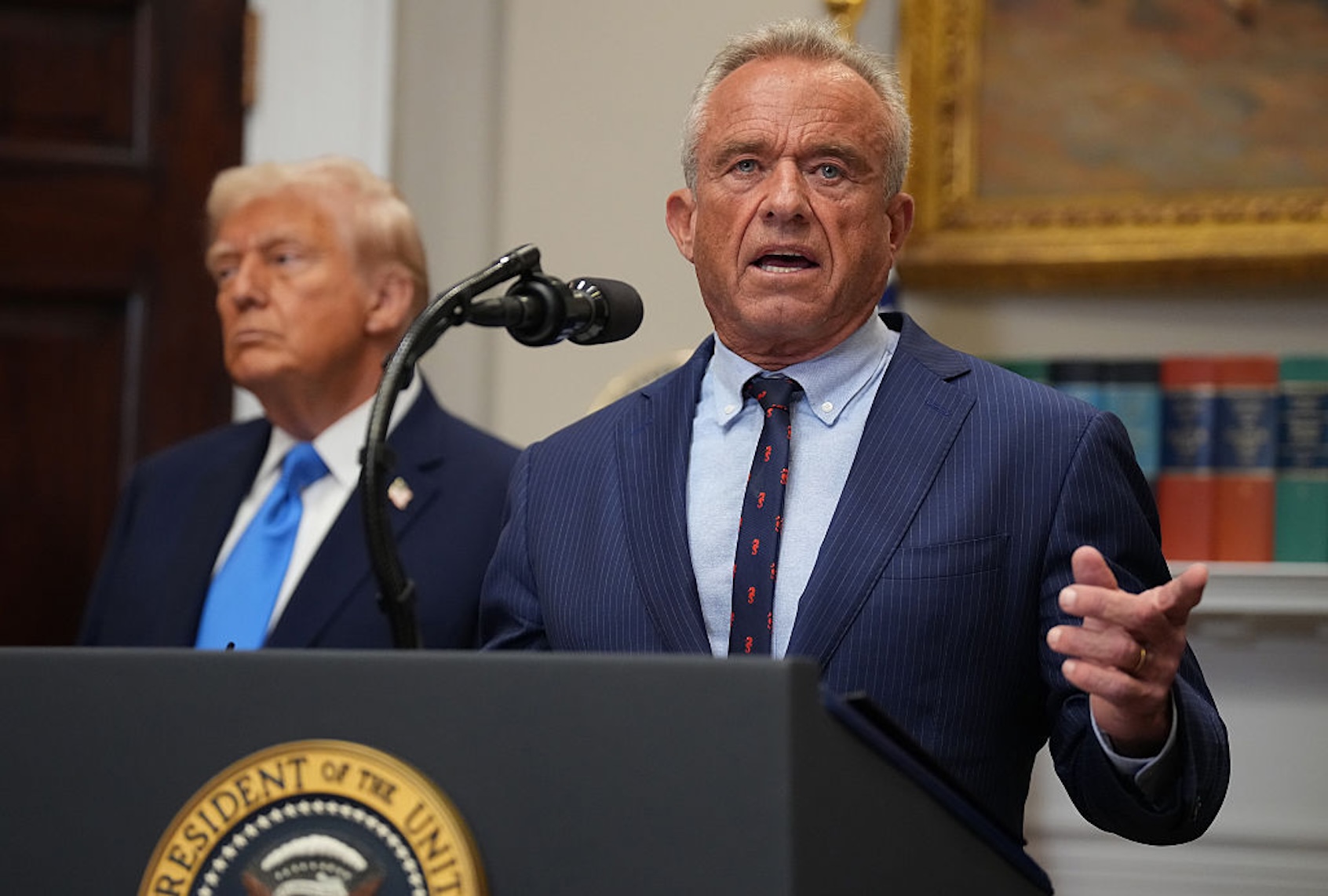RFK Jr.’s attack on mRNA vaccines will cost lives

The Department of Health and Human Services recently cut $500 million in mRNA research funding. “mRNA technology poses more risks than benefits,” HHS Secretary Robert F. Kennedy Jr. said in a statement, claiming that the department’s experts had “reviewed the science, listened to the experts, and acted.”
This is just the latest blow in the agency’s misguided efforts to wind down mRNA vaccine development. In May, HSS terminated Moderna’s contract for an mRNA-based bird flu vaccine that was awarded in 2024 by former President Joe Biden’s administration. The reason? HHS deemed that “continued investment” was not “justifiable.”
That’s an absurd conclusion. Earlier this year, Moderna announced that its experimental vaccine for bird flu — a disease that has already sickened dozens of Americans and could infect millions if it mutates further — showed enormous promise during an initial clinical trial. The company was prepared to begin late-stage development immediately, with the help of $766 million in existing government contracts.
HHS’s move to cancel this contract is pitifully illogical. Bird flu has already cost America billions — and if it mutates to allow for human-to-human transmission, the cost could soar into the hundreds of billions or even trillions of dollars.
Withdrawing funding for a promising experimental vaccine makes no financial or moral sense. It’ll endanger Americans, baselessly stoke mistrust in one of the future’s most important health technologies and accelerate the offshoring of American biotech jobs that are critical for our national security.
When HHS first partnered with Moderna, it had a clear vision in mind. It needed a vaccine for bird flu that could be kept in reserve, but also deployed quickly in case the virus — which currently can only jump from animals to humans — evolves to spread directly from person to person.
Because that mutation hasn’t yet happened, most of the public is unaware of the threat. And there’d be no market for the vaccine until a crisis happens. That’s precisely why government contracts were needed — to effectively help fund the creation of a public good.
Moderna’s mRNA platform, which is capable of editing and updating vaccines in days rather than months, made it the ideal partner for that mission. By investing early, the government could enable the company to develop a prototype that could be rapidly adapted and deployed in response to a future pandemic.
Want more sharp takes on politics? Sign up for our free newsletter, Standing Room Only, written by Amanda Marcotte, now also a weekly show on YouTube or wherever you get your podcasts.
It was a smart, strategic move — exactly the kind of foresight public health leadership requires. And it wasn’t just about bird flu. mRNA vaccine technology is one of medicine’s most promising frontiers. Research indicates that it has the potential to revolutionize the treatment and prevention of numerous diseases, from influenza to HIV to pancreatic cancer.
It’s also in our national security interests to ensure our scientists — and not China’s — are responsible for those breakthroughs. Otherwise, the next time a pandemic strikes, we could find ourselves reliant on foreign adversaries for lifesaving medicines.
Likewise, it’s in our economic interest to keep advanced vaccine manufacturing here at home. According to the Bureau of Labor Statistics, America’s pharmaceutical manufacturing sector provides nearly 350,000 jobs, from doctors and researchers to maintenance engineers and construction workers. Denying innovative life science companies the support they need to succeed on American soil only incentivizes them to move good-paying jobs overseas.
Asked to explain why it pulled Moderna’s funding, HHS pointed to safety concerns. “The reality is that mRNA technology remains under-tested,” stated Andrew Nixon, the department’s head of communications. This is total nonsense, as is most of what comes out of HHS these days.
But there are multiple issues with that framing. The rapidly growing body of evidence shows that mRNA vaccines are highly effective, with few, if any, lasting risks.
And if HHS officials have concerns about mRNA vaccine side effects, that’s all the more reason to invest in their improvement. Over the years, the U.S. government has built a world-class system for testing, trialing and monitoring vaccines to ensure their safety. From funding the Human Genome Project to investing in HIV/AIDS treatment to supporting the creation of the COVID-19 vaccines, we’ve proven time and again that strong national governance can overcome scientific obstacles.
Abandoning mRNA vaccine development now, despite promising test results, sends the opposite message — and fuels the false, damaging narrative that vaccines aren’t safe or useful.HHS has claimed that it wants to promote “safety, integrity, and trust.” But under the leadership of Kennedy, its actions say the opposite. Only by supporting the development of effective, cutting-edge vaccines can policymakers build a trusted public health system that keeps Americans safe.
Read more
about this topic
